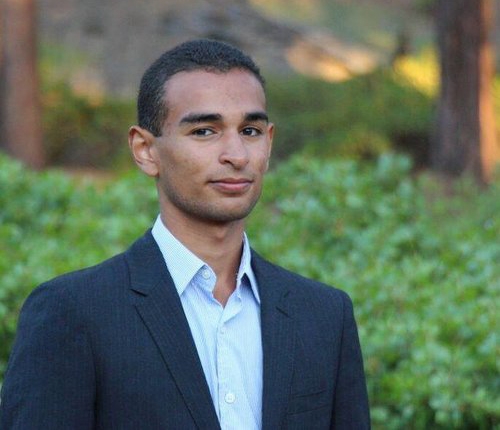Alumnus Selected as a Knight-Hennessy Scholar

MIDDLEBURY, Vt. – A 2017 graduate of Middlebury College, Mohamed Hussein, has been named a Knight-Hennessy scholar – one of 49 individuals selected to receive full funding to pursue a graduate degree from Stanford University.
Hussein was chosen to join the first cohort of Knight-Hennessy scholars, a new program that seeks to “develop a community of future global leaders to address complex challenges through collaboration and innovation.” The Middlebury alumnus will pursue a PhD at Stanford’s Graduate School of Business with a focus on marketing and consumer behavior.
At Middlebury, Hussein was appointed to Phi Beta Kappa, graduated magna cum laude, and earned highest honors from the Department of Economics, his major field of study. He was a fellow at the Center for Social Entrepreneurship; president of Dolci, the student-run restaurant; and president of Arabesque, the Arabic cultural student association.
During the 2017 Spring Symposium, Hussein presented his research on “Do Bilinguals Behave Differently Depending on Language? Investigating the Foreign-Language Effect among Balanced Bilinguals.”
Mohamed Ayman Hassan Hussein was born in Cairo, Egypt, and attended the Lester B. Pearson United World College of the Pacific in British Columbia prior to his enrollment at Middlebury. At Stanford, he will reside at Denning House with the other Knight-Hennessy scholars and be part of the university’s graduate community of about 9,000 students.
Announced in 2016, the Knight-Hennessy Scholars program has a $750-million endowment and it honors Phil Knight, cofounder of Nike Inc. and a 1962 MBA graduate of Stanford, and John L. Hennessy, the 10th president of Stanford University (2000–2016) and chairman of Alphabet, the parent company of Google.
The program received 3,601 applications for its inaugural cohort of scholars, from which 103 finalists were invited to Stanford’s campus in January for interviews. Women comprise 57 percent of the selected scholars. Sixty-three percent of the scholars hold non-U.S. passports from 19 different countries including Syria, Colombia, Afghanistan, Myanmar, New Zealand, Romania, Nigeria, and Germany.

